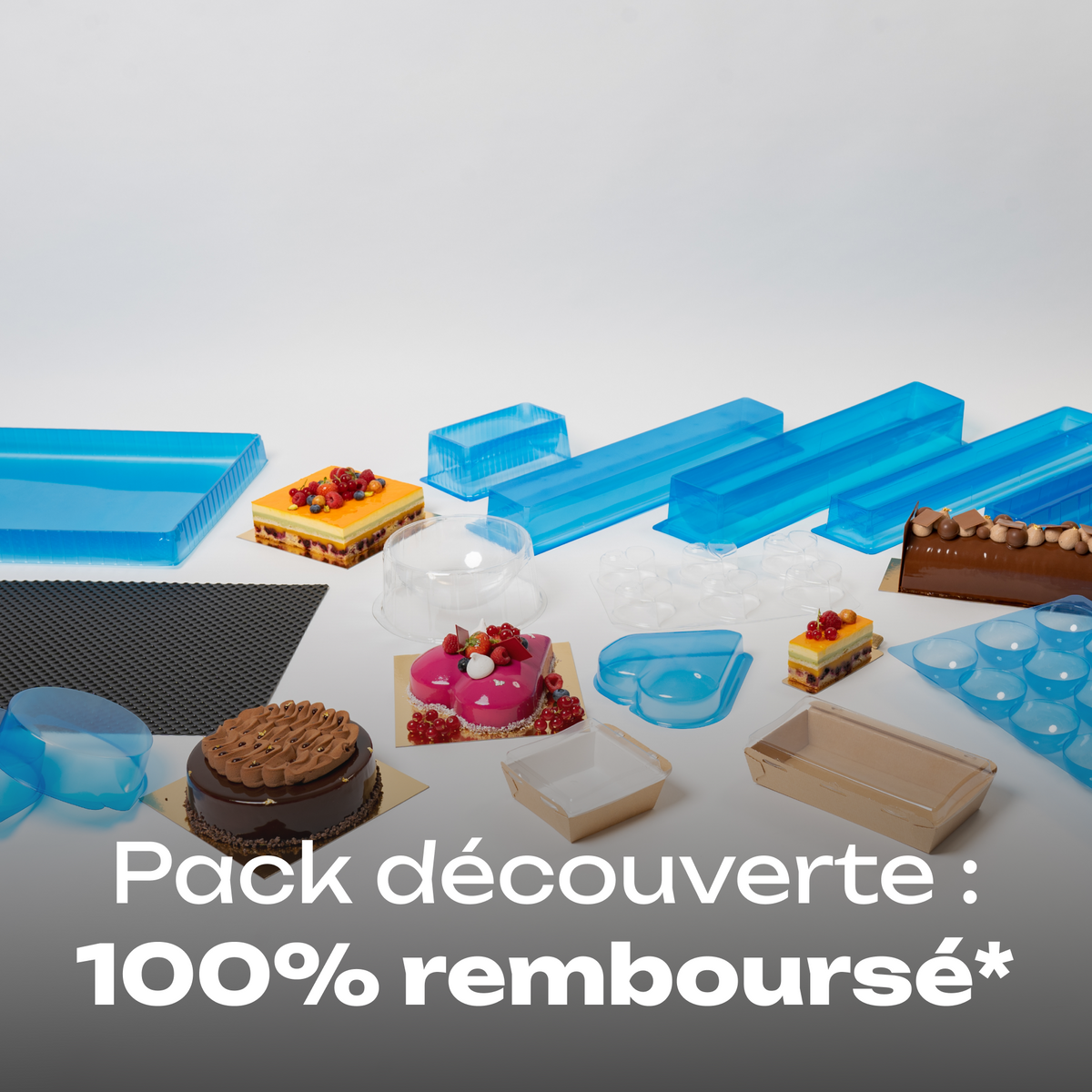The plastic mold revolution for pastry professionals
Food-grade plastic molds first appeared in the kitchens of professional bakers decades ago. If some purists hesitated for a long time to adopt them, it is clear that they quickly conquered the market. More economical, more practical and more hygienic, these molds have many advantages for pastry professionals. Here are the reasons why plastic molds have become a revolution for pastry professionals.
The Benefits of Plastic Molds for Professional Pastry Chefs
- No more washing: One of the most obvious benefits of disposable plastic molds is that they don't require washing. This saves precious time for pastry professionals who can concentrate on their preparations, and save time at the dishwashing station. Unlike metal or silicone molds which must be thoroughly cleaned after each use to prevent the proliferation of bacteria.
- Perfect release: Plastic molds are also known for their ease of release. Thanks to their flexibility, cakes and other desserts can be unmolded more easily, without risk of breakage or deformation. Professional pastry chefs can thus produce uniform, perfectly executed desserts.
- Economical: Plastic molds are less expensive than any other type of mold. For example, for a standard product such as the round entremet Ø18cm height 4.5mm, a stainless steel frame costs on average 10 times more than its plastic mold equivalent. But to produce in series, it is necessary to be equipped with several frames. And that's without counting on the accessories to add with the stainless steel frame, which also have a cost: guitar sheet, rhodoïd etc.
- Time saving: As soon as they come out of their food cover, the plastic molds can be used immediately for filling, directly placed on the marble in the lab. No need to prepare the support that receives the preparations: installation of an aluminum plate, laying of a guitar or baking sheet, laying of rhodoïd to flatten the circle, then filming the cake to insulate it from the cold, unhooking, washing and storage. All these operations added together represent time and a human cost that is not devoted to creation.
- Recyclable: Plastic molds are recycled via traditional sorting channels: they are in fact upgraded by specialized companies, which produce plastic again. Thus, PETIT uses up to 80% recycled plastic to produce its moulds. They integrate a circular economy process.
- Space saving: With the plastic molds, once used, there is no need to find a dry and clean place to store them. Practical especially for seasonal productions such as logs: after the season, you no longer have to save space to store your log moulds, and thus free up storage space for other materials.

Examples of Professional Pastry Chefs Using Plastic Molds
Thomas C., pastry chef of the restaurant "Le Papillon" based in Paris.
Thomas is an avid user of plastic molds for the production of his desserts. According to him, " using plastic molds saves him a lot of time in his production, which allows him to spend more time creating new dessert recipes for the restaurant." In addition, Thomas appreciates the ability of plastic molds to perfectly retain the shape of the cakes once unmolded. The desserts have a perfect visual aspect, with a regular appearance.
Stéphanie, owner of the pastry shop "Le sucre-salé"
Stephanie is gradually replacing all her stainless steel molds with plastic molds. According to her, " this decision allowed her to increase her productivity by 20% ." She can thus produce more cakes in less time, while requiring less labor, which allows her to satisfy more customers while reducing her costs:
Plastic molds are a great choice for bakers looking to save time and money. They enable faster and more efficient production of pastries, and reduce costs in the long run. If you are a professional baker, it's time to adopt plastic molds to improve your production and your profitability!


